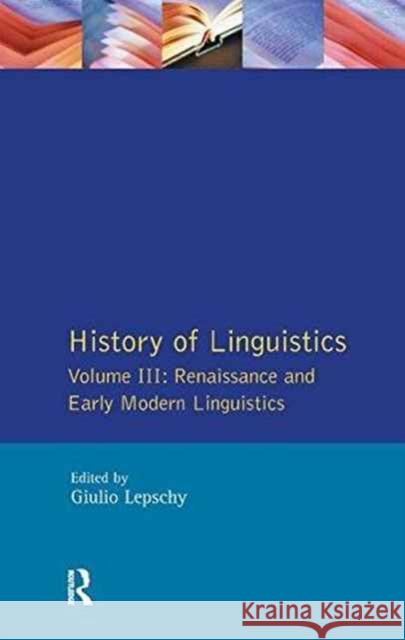History of Linguistics Vol III: Renaissance and Early Modern Linguistics » książka
topmenu
History of Linguistics Vol III: Renaissance and Early Modern Linguistics
ISBN-13: 9781138178663 / Angielski / Twarda / 2016 / 288 str.
History of Linguistics Vol III: Renaissance and Early Modern Linguistics
ISBN-13: 9781138178663 / Angielski / Twarda / 2016 / 288 str.
cena 708,33 zł
(netto: 674,60 VAT: 5%)
Najniższa cena z 30 dni: 654,86 zł
(netto: 674,60 VAT: 5%)
Najniższa cena z 30 dni: 654,86 zł
Termin realizacji zamówienia:
ok. 16-18 dni roboczych.
ok. 16-18 dni roboczych.
Darmowa dostawa!
Kategorie:
Kategorie BISAC:
Wydawca:
Routledge
Seria wydawnicza:
Język:
Angielski
ISBN-13:
9781138178663
Rok wydania:
2016
Numer serii:
000013944
Ilość stron:
288
Oprawa:
Twarda
Wolumenów:
01
Dodatkowe informacje:
Bibliografia











